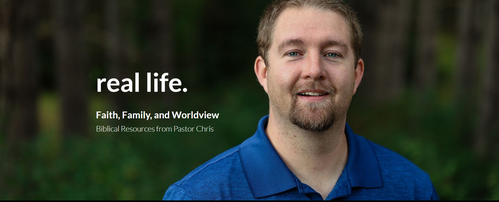TALKING TO YOUR KIDS ABOUT TOUGH TOPICS
How do we talk to our kids about hard topics? Topics like the moral failure of a leader, suicide, mass shootings, divorce, etcetera can be tough for all of us as parents/grandparents to broach. I recently struggled through one of these topics with my own kids. We all probably have some different opinions as to handling these conversations but there are also plenty of things that we should definitely agree on. I want to share some of these thoughts of my own (along with some Scripture) as an encouragement and practical help for you.
Prayers and blessings to you on this tough task,
Pastor Chris
- We are the primary teachers/disciplers of our children. It is our responsibility to teach our children no matter how hard the subject. If we don’t teach them someone else will, but probably not with the same values and beliefs that we share. This means that we can’t omit uncomfortable topics. We each must determine for ourselves what is appropriate for each age. However, my experience as a children/youth pastor and as a parent is that most kids learn about tough topics from their friends, schools, and media before their parents are ready to talk about them about those topics. Let’s change that trend.
4 “Listen, Israel: The LORD our God, the LORD is one., 5 Love the LORD your God with all your heart, with all your soul, and with all your strength. 6 These words that I am giving you today are to be in your heart. 7 Repeat them to your children. Talk about them when you sit in your house and when you walk along the road, when you lie down and when you get up. 8 Bind them as a sign on your hand and let them be a symbol on your forehead., 9 Write them on the doorposts of your house and on your city gates. Deuteronomy 6:4–9 (CSB) - Teaching your kids is a way of life, not an event. Many times we think of teaching as a prepared lecture but for most of us, that is not the best way we learn. Using teachable moments in life (whether from our lives, others, or current events) make our instruction not only relevant but valuable to our kids, because they will see the consequences and they won’t want to make the same mistakes that we or others make.
2 Honor your father and mother, which is the first commandment with a promise, 3 so that it may go well with you and that you may have a long life in the land. Ephesians 6:2–3 (CSB) - Our teaching is an important part of their well-being and ability to prosper, especially in the difficult parts in life. Our teaching can help prevent many dangers and shape the trajectory of their lives.
8 Listen, my son, to your father’s instruction, and don’t reject your mother’s teaching, 9 for they will be a garland of favor on your head and pendants around your neck. Proverbs 1:8–9 (CSB) - As we teach our kids, may we not only do so out of love for them and others, but also communicate in a way that they feel our love for them and others. Ask any professional teacher, it is proven that kids and teens respond much better to positive conversations than negative. This is true in our tone and expressions toward others and when you use the positive words rather than “don’t do…”. Many times we tend to point out sin in a way that seems as though we hate people who commit those sins. It’s best to make a clear distinction between the sin and the sinner. Christ loved the sinner enough He died on the cross for them, but it’s the sin that caused us to need His death to cover our sin.
15 But speaking the truth in love, let us grow in every way into him who is the head—Christ. Ephesians 4:15 (CSB)
In short, we should teach our children age appropriately, in love, as we have the opportunity, before the world teaches them on those same topics. God never told us it would be easy, but we can rest assure that He is with us.
Prayers and blessings to you on this tough task,
Pastor Chris
Posted in Real Life


No Comments